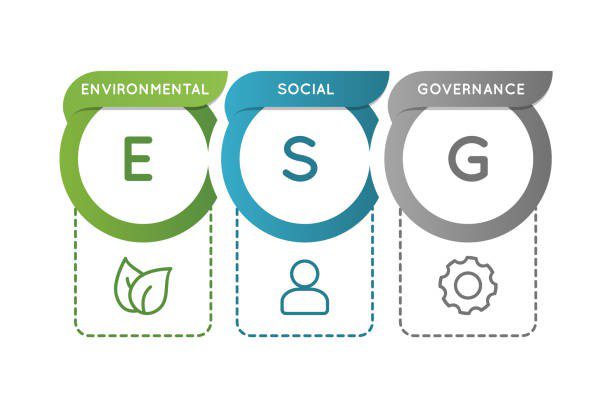Investing in Dutch Real Estate: Exclusive Tips for Best Returns
Investing in Dutch real estate has become an increasingly attractive option for both domestic and international investors. With its stable economy, strategic location in Europe, and strong demand for housing, the Netherlands offers a unique marketplace that combines growth potential with relative security. However, like any investment, success depends on knowledge, planning, and strategy. In this article, we’ll explore exclusive tips to help you maximize your returns when investingin Dutch property.
Understanding the Dutch Real Estate Market
The Dutch real estate market is characterized by steady growth, a high level of urbanization, and a robust legal framework that protects both buyers and landlords. Cities such as Amsterdam, Rotterdam, The Hague, and Utrecht have seen consistent demand for housing, driven by population growth, international businesses, and the steady influx of expatriates.
One of the key factors that makes this market appealing is its diversity—investors can choose from residential properties, commercial real estate, student housing, and even development projects. Before making a decision, it’s crucial to assess which sector aligns best with your investment goals and risk tolerance.
Read More: How to Get a Mortgage in Dubai
Location, Location, Location: Prioritizing Where to Invest
When aiming for the best returns, location within the Netherlands plays a decisive role. Amsterdam, with its global appeal and constrained housing supply, is a tempting option but also tends to have higher property prices and more competition. On the other hand, up-and-coming cities like Eindhoven and Groningen offer promising growth prospects, often at lower entry costs.
Suburban areas and smaller cities are increasingly attracting attention as remote work trends evolve, creating new opportunities for investors seeking rental yields rather than capital appreciation. Understanding regional dynamics and local demand is essential to spotting hidden gems and avoiding overpriced markets.
Exclusive Tip: Research Local Regulations and Purchase Costs
The Netherlands is known for having transparent but sometimes complex property laws and regulations. It’s worth investing time to understand important legal aspects such as transfer taxes, mortgage rules, and landlord responsibilities, especially if you are a non-resident buyer.
Additionally, closing costs—including notary fees, valuation fees, and taxes—can add up to about 6% to 10% of the purchase price. By getting a clear picture of these additional costs early on, you can better estimate your overall investment and expected returns.
Financing Your Dutch Property Investment
Dutch banks and financialinstitutions generally provide favorable mortgage conditions for property investments, but criteria vary, particularly for non-residents. It is advisable to pre-arrange financingor at least understand your borrowing capacity before committing.
Moreover, some banks offer specific mortgage products tailored for buy-to-let investors. This can significantly improve your cash flow management. Consider consulting a mortgage broker with expertise in Dutch real estate to explore the most advantageous options.
Maximizing Returns Through Smart Property Management
Owning a property is only part of the investment journey; managing it efficiently is equally vital. Hiring a professional property manager can save you time and help maintain steady rental income. They take care of tenant screening, maintenance, and compliance with local tenancy laws, which can be stringent.
Also, consider the benefits of renovating or upgrading older properties. Energy-efficient improvements, for instance, are highly valued in the Netherlands and may attract higher-quality tenants while reducing your operational costs.
Read More: The Global Expat Financial Guide: Banking and Investing Abroad
Capitalizing on Trends: Student Housing and Short-Term Rentals
Certain niche markets in Dutch real estate promise attractive returns. With over 200,000 international students enrolled in Dutch universities, student housing demand remains robust. These properties typically offer stable occupancy and can command premium rents if located near campuses.
Short-term rentals, especially in tourist-friendly cities like Amsterdam, are another lucrative option, although local regulation restrictions mean you must thoroughly research permitting requirements and community rules before diving in.
Tax Considerations and Investment Structuring
Investors should be aware of the tax implications associated with Dutch properties. Rental income is generally taxed in Box 3 (income from savings and investments) at a fixed rate based on the net value of the property rather than actual rental profits.
Moreover, depending on your residency status and investment scale, forming a Dutch BV (limited liability company) might confer tax advantages or simplify succession planning. Partnering with an experienced tax advisor can ensure you optimize your structure to reduce liabilities and increase net returns.
FAQs
1. Can foreigners buy property in the Netherlands?
Yes.There are no nationality-based restrictions on buying residential or commercial property in the Netherlands.You do not need to be a resident to own real estate, though being a resident can make it easier to secure a Dutch mortgage.
2. What is the current Transfer Tax (Overdrachtsbelasting) for investors?
As of January 1, 2026, the transfer tax for residential investment properties (homes you do not live in yourself) has been reduced to 8%.While this is a decrease from the previous 10.4%, it remains higher than the 2%rate applied to primary residences.
3. How does the “Affordable Rent Act” affect my returns?
The Affordable Rent Acthas expanded rent controls to “mid-market” homes. If a property scores below 186 points on the Housing Valuation System (WWS), the rent is capped (currently around €1,158 per month). Investors should verify a property’s point score before purchasing to ensure their projected rental income is legally permissible.
4. How is rental income taxed in 2026?
In the Netherlands, rental income for private individuals is generally taxed in Box 3based on a “notional” (assumed) return rather than actual profit.For 2026, the assumed return for “other assets” (including investment property) has increased to 7.78%.However, under the counter-evidence scheme, you may pay tax on your actualreturn if you can prove it was lower than the government’s assumption.
5. Can I still offer temporary rental contracts?
Since the Fixed Rental Contracts Act(July 2024), indefinite contracts have become the standard. Temporary contracts (maximum 2 years) are now restricted to specific groups, such as students or people in urgent housing need. For most investors, this means planning for long-term tenants with strong legal protection.
6. What are “VvE” fees, and why are they important?
When buying an apartment, you automatically join the Vereniging van Eigenaren (VvE)or Owners’ Association.You are legally required to pay monthly fees for building maintenance and insurance. It is vital to check the VvE’s financial health before buying, as a poorly funded association can result in unexpected “special assessments” for major repairs.
7. Does buying property grant me residency in the Netherlands?
No.Simply purchasing real estate does not grant you a residence permit or visa.Residency is usually obtained through employment, family reunification, or a specific “Wealthy Investor” visa that requires a much higher capital contribution (typically over €1.25 million) into the Dutch economy.
8. What is “Erfpacht” (Leasehold)?
In cities like Amsterdam, you may encounter Erfpacht, where you own the building but the municipality owns the land.You must pay an annual fee (canon) for the land use. When investing, check if the canon is “bought off” (paid in advance) or if it is subject to future increases, as this significantly impacts your resale value and mortgage eligibility.
Final Thoughts: Position Yourself for Success in Dutch Real Estate
Investingin Dutch real estate offers a compelling blend of security and opportunity. By carefully choosing location, understanding legal and financial frameworks, and leveraging expert property management, you can significantly enhance your likelihood of generating strong returns.
Thorough research and professional advice tailored to your individual circumstances remain the cornerstones of success. Whether you target a steady rental income or capital growth, the Dutch market provides fertile ground for investors willing to approach it with insight and diligence.










